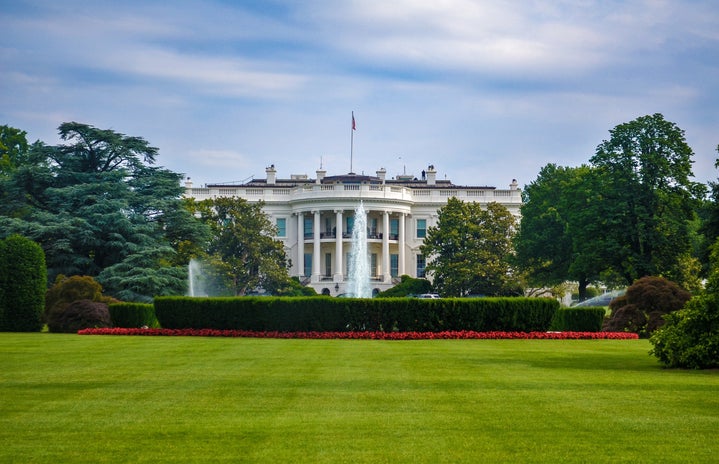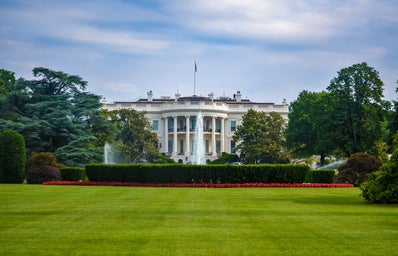Hey there, collegiettes! You’ve probably seen a massive inundation of political news this week. That’s because primary season is finally upon us. That’s right, the campaigns have been going on for months now, but states just started to vote on candidates this week. The political conversation can be a difficult one to follow, so we’re here to break it down for you.
What is a primary/caucus?
Primaries and caucuses happen at the state level, each state has a different voting date. Florida’s is on March 15th and if you are an out of state student, find yours here. Not everyone can vote in a primary or caucus. In order to vote, an individual must be 1) a registered voter and 2) a registered party member. Since the purpose of a primary/caucus is to select the Presidential candidate of the party, only party members can vote.
So what’s the difference between a primary and a caucus?
This is a tricky question. To break it down, a primary is what you probably think of as a typical election. Voters go to their designated voting site throughout the day to submit their ballot. A caucus, on the other hand, is different. Caucus rules vary by state and by party. In general, a caucus is a face to face meeting where voters publicly announce their support for a candidate and then try to sway individuals to their side. Still confused? Check out this quick video that explains how a caucus works with the use of gummy bears. Because if we’re honest, everything is better with a little candy.
When does all of this end?
Since states hold their primaries on different days this can be quite a long process. After “Super Tuesday,” as in one day when a ton of states hold their primaries, the political talk will die down a bit. That’s because after this event, many candidates will drop out of the race, and the potential winner becomes a little more clear. Officially, the conventions (or big rally where the parties announce their candidate) happen in mid – July. So you’ll have to stick around for a bit more political conversation. And, of course, the actual Presidential election won’t take place until November.
So… what happened in Iowa?
You’ve likely heard this state mentioned time and time again. That’s because Iowa held its caucus this past week. The results that came back were quite interesting. We’ll break it down by party for you here:
Democrats:
Three candidates were up for election at this primary: Hillary Clinton, Bernie Sanders, and Martin O’Malley. After Martin O’Malley received less than 1% of the votes, he dropped out of the race. That means the Democrats are left to choose between Hillary Clinton and Bernie Sanders. As for who won the Iowa caucus, that would be Hillary Clinton. Keep in mind, she won by less than half a percentage point. Many people are declaring Bernie Sanders the real winner of Iowa. Why? He jumped into the election virtually unknown and at the beginning of his campaign polled at only 3% in Iowa. The momentum of how he got up to almost tie with Hillary Clinton, a political machine, astounded voters across the nation.
Republicans:
On this side, things are a little more hectic. Why? Well, the party had a dozen candidates going into this primary. Who are they? Ted Cruz, Donald Trump, Marco Rubio, Ben Carson, Rand Paul, Jeb Bush, Carly Fiorina, John Kasich, Mike Huckabee, Chris Christie, Rick Santorum, and Jim Gilmore. Phew, that’s a lot of people. You might recognize two names: Jeb Bush and Marco Rubio, as they are both from Florida. After the Iowa caucus, only Mike Huckabee dropped out, so the Republicans are still left with eleven options. EDIT: As of February 5th, Rand Paul, and Rick Santorum have dropped out of the race.
So who won? Well, for the Republicans who won and who didn’t win is just as important. Donald Trump went in expecting a landslide victory only to come in second place. Ted Cruz pulled into first place with 27%. Donald Trump followed him with 24%. While Trump may have placed above Marco Rubio, who had 23%, Rubio was more of a winner. Why? Well, like Bernie he was more of the underdog of the Republican voters. So his success, even in third place, was a big win for him. To lose is to win sometimes in the political game.
What should I expect next?
The next primary will take place in New Hampshire. Yes, this event is actually a primary. For the Democrats, Bernie Sanders is polling high above Hillary Clinton, almost 2:1. A landslide New Hampshire victory could be the push Sanders needs to become nationally recognized as a candidate. For the Republicans, expect New Hampshire to weed out a lot of the candidates. Seven of the twelve candidates came in with less than 3% in Iowa, if they continue to do so poorly in New Hampshire, it’s likely they will leave this race. A smaller pool of Republican candidates will allow the party to become serious about how they will nominate.
We’re proud of you for making it through this exhaustive explanation of the political game in America. If you’re looking to delve deeper into politics, keep in mind Donald Trump will hold a rally at the USF Sun Dome on February 12th. If you’re not quite ready to head to a political rally yet, I’d advise steering clear of the Sun Dome that day and instead checking back here on Her Campus for more plain english politics!


